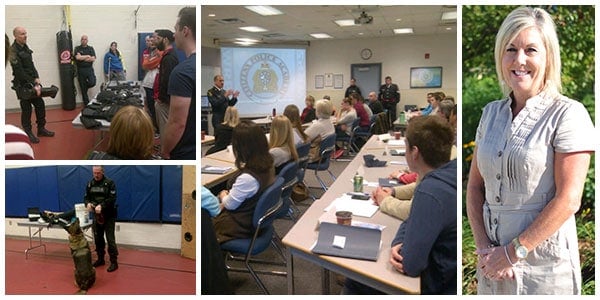The Ministry of the Environment is failing the people of Elmira, says the community’s environmental watchdog group. The Chemtura Public Advisory Committee (CPAC) says the province isn’t doing enough to deal with a multitude of chemical contaminants buried underground and leaching into groundwater.
The organization is currently preparing a resolution it hopes will win Woolwich council approval calling for the ministry to ensure the cleanup of the aquifer under Elmira.
In a presentation to councillors September 2, CPAC chair Dan Holt said a variety of toxins in and around the Chemtura chemical plant remain a threat to the environment, 25 years after the water crisis in Elmira.
“[T]here is overwhelming evidence that significant sources of pollution still remain under and around the Chemtura site, and these sources continue to pose potentially serious risks to human health and the environment … around the site, as well as soils and sediments in the Canagagigue Creek and floodplains of the Grand River downstream of the Chemtura site,” he said.
The MOE, formally known now as the Ministry of the Environment and Climate Change, has focused on just three of the many toxins – chlorobenzene, ammonia and NDMA – and hasn’t done enough dealing even with those, CPAC argues.
Chemtura – Uniroyal Chemical at the time, then later Crompton Co. – has been using a pump-and-treat process to remove a pair of toxins – NDMA (nitrosodimethylamine) and chlorobenzene – from the former drinking water aquifers underneath Elmira. Discovery in 1989 of the carcinogenic NDMA precipitated the water crisis in Elmira, leading to the construction of a pipeline from Waterloo, which supplies the town with water to this day. Later, an ammonia-treatment plant was built.
The aquifers are supposed to be returned to drinking water standards by 2028, but CPAC and the township have long questioned the ability of the company to meet that deadline. Calls for assurances from the MOE have fallen on deaf ears.
“CPAC has come to the realization that the MOE’s investigations to date are inadequate, and that their failure to properly remedy the harm caused by the chemical sources in and around the site are evidence of statutory negligence,” said Holt, calling the ministry’s actions “inadequate at best and at worst wilfully negligent.”
Coun. Mark Bauman, who serves as council’s liaison to the committee, said CPAC is “challenging the MOE to take some action.”









